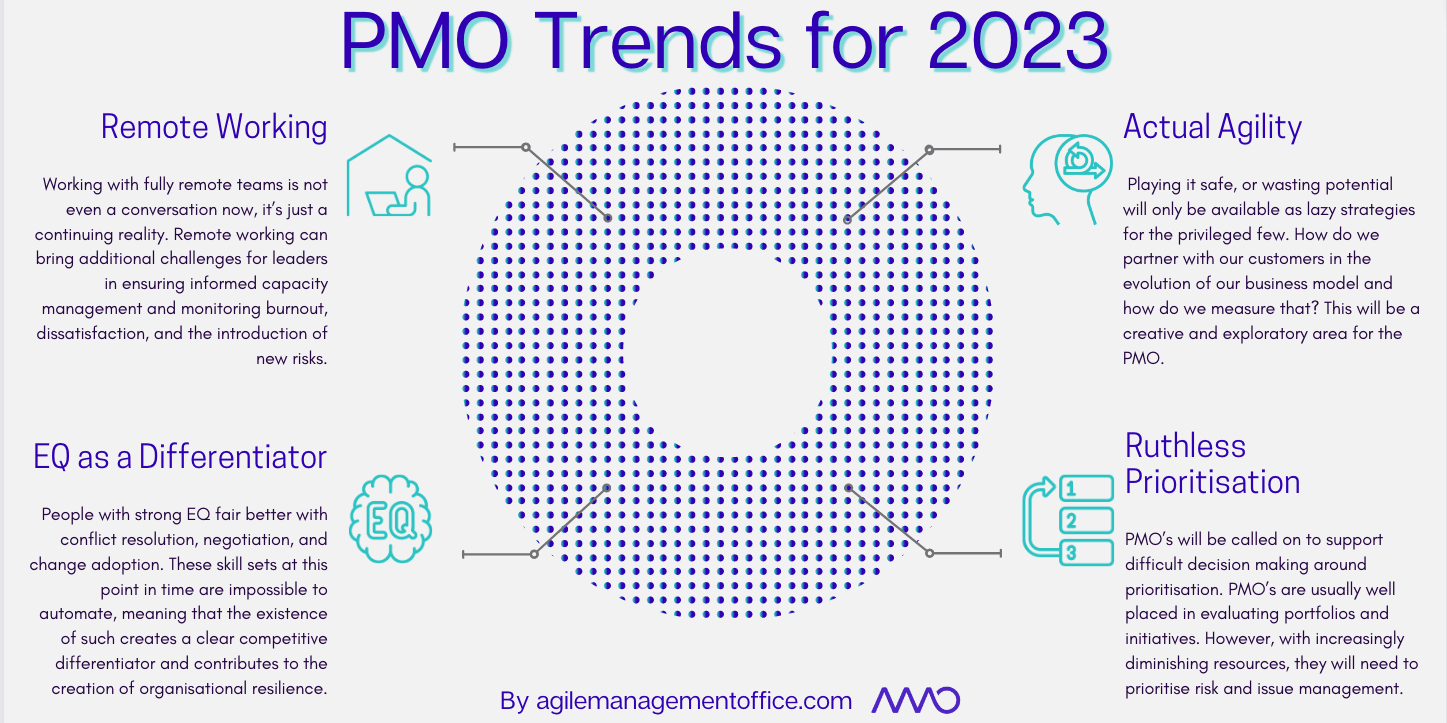Wow, 2022 has been a tumultuous year for us here at AMO. A year of many interesting moments and cross-roads. Have you felt this too?
As we move to close out the last month of 2022, we are taking an intentional pause, to deeply reflect on the year that has been, and to explore and bring laser focus to our core strategy and purpose. This insight will propel us into 2023.
As a boutique consultancy with a breadth of skill set, we’ve observed that this year has been an unstable one in the market, and we have found ourselves responding to many of the trends we predicted for 2022.
The attraction and retention of top talent was certainly a theme for 2022 (as predicted!) and we have actively played in this space throughout the year. Responding to urgent needs with our clients, rapidly placing resources where gaps have existed and supporting retention strategies.
Also, in 2022, Agile has had somewhat of an identity crisis (as predicted!) in the delivery environment of a number of the organisations that we partner with. We have helped to un-pick this, retrain and up-skill capability, where it’s been needed and support clients on getting clear on their ‘why’, with the delivery method and governance approach, being a naturally aligned consequence of this.
Complexity, uncertainty, volatility, and the related un-ease involved in working in such environments has offered us opportunities to lean into our leadership and coaching skillset, and we see this as a continuing theme for next year.
Anyway, let’s cut to it! What’s on the cards for PMO in 2023?
Remote working
Yes, it’s here to stay! We anticipate this to go even further in 2023. Working with fully remote teams is not even a conversation now, it’s just a continuing reality.
The trick for the PMO is ensuring the ways of working support this. Some of this is obvious, for example systems need to support remote collaboration, delivery transparency and governance, that’s just a given. But, where we expect this to change for the PMO, is that we anticipate an expectation to play a much broader role in employee wellbeing over the coming years, which will be measured through retention metrics.
Remote working can bring additional challenges for leaders in ensuring informed capacity management and monitoring burnout, dissatisfaction, and the introduction of new risks.
PMO’s have a great opportunity to contribute to bridging the leadership and delivery gap to bring insight and harmony to the structures connecting these discipline and groups, contributing to positive culture and reducing risk.
Actual Agility
We all know what agile is, as a theory, but how many organisations are actually agile? What does this even mean? Can we pivot, can we stop and start, can we build operational and strategic resilience? Can we create space for creativity, and capacity agility, to jump on new opportunity?
Do we really know our customers and their needs? How do we partner with our customers in the evolution of our business model and how do we measure that? This is such a creative and exploratory area for the PMO to immerse in.
What does a meaningful measure look like? What indicators should we really be looking at to drive the business forward with some decent trajectory? We believe that in 2023, playing it safe, or wasting potential will only be available as lazy strategies for the privileged few. At AMO we believe that PMO’s are in a unique position to impact performance through insightful observation and metrics.
EQ as a differentiator
This theme is a maturity on last year’s theme of play nice! An emotionally intelligent environment not only promotes an inclusive, diverse and hopefully psychologically safe environment to be in, but also one with strong business credentials.
People with strong EQ generally fair better with conflict resolution, negotiation, and change adoption. These skill sets at this point in time are almost impossible to automate. Meaning that the existence of such can create a clear competitive differentiator and contribute to the creation of organisational resilience.
EQ creates a certain kind of operational environment. PMO’s are in such an influential position to role model strong EQ and allow the benefits of this to be felt and seen. Delivery environments are quite often a complex web of socio-political interactions, with different and at time conflicting agendas. PMO’s have a responsibility to use their privilege of neutrality to guide interactions for equitable outcomes. Paving the way for optimal outcomes overall.
Ruthless Prioritisation
In a year that is sure to be one involving finite resource, in one shape or form, PMO’s will be called on to support difficult decision making around prioritisation. PMO’s are usually well placed in evaluating portfolios and the initiatives within. However, with increasingly diminished resources, how do we prioritise risk and issue management? What is our risk appetite? What flexibility do we have within this? What is waste? What’s governance for governances’ sake? How can projects share data sets and testing resource? What can we automate? How can we get out of the way of delivery, avoid burnout, retain staff and do the things that deliver the biggest benefits for customers? In other words, how do we ruthlessly prioritise?
Thanks for engaging with this content. We hope that we have left you with something that resonated and that perhaps you can use this as a springboard to research more and consider how you personally will set yourself up for a great 2023 in your PMO role.
If you have any of your own observations, we always love to hear from you, so please reach out!
To revisit the top PMO trends for 2022, check out our article listing them and see how we did… what do you think?
Want to find out more about how AMO can help with your project management capability? Have a look here (https://agilemanagementoffice.com/consult/) how our team can help yours reach their full project management potential. If you want to know more, contact us on contact@agilemanagementoffice.com
